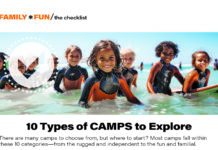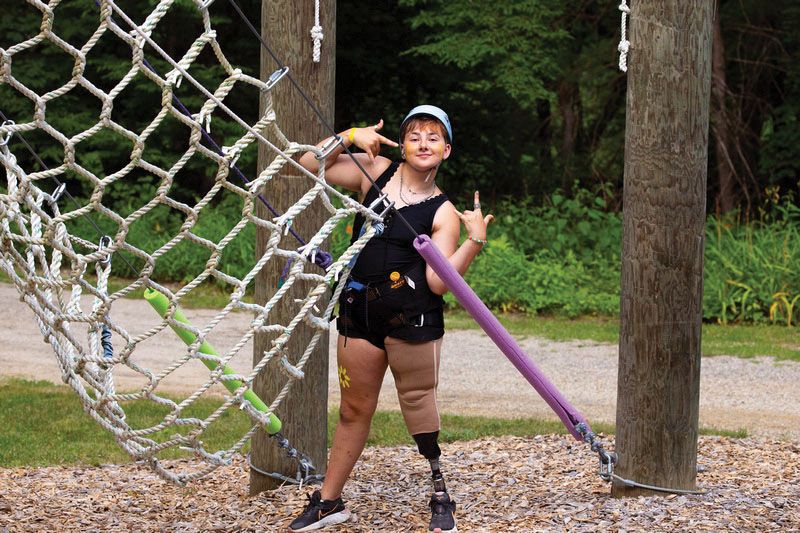Kids with special needs don’t have to miss out on the summer camp experience. Many camps today are geared to specific disabilities, while others work hard to accommodate kids with special needs.
You want your child to feel a part of the crowd but also to be well cared for. Tara Kelley, Program Director at HandiCamp in Akron, PA, says that specific special needs camps do just that.
“A special needs camp can give kids a chance to be in an environment where they are just like everyone else, not different and not on the sidelines,” Kelley says. “It’s an opportunity to focus on what they can do instead of worrying about limitations and the freedom to be themselves.
“Children definitely have less anxiety and gain self esteem when they see they are not the only ones with challenges, and they might even get to be helpers and teachers for some of the other campers,” says Colleen Reilly, a certified behavioral analyst at Sensational Kids summer camp in Marlton, NJ. “It gives them a sense of empowerment.”
Resources
Finding the right camp might seem difficult, but there are plenty of resources.
- Agencies such as the United Way, United Cerebral Palsy, Easter Seals and ARC often maintain lists of programs.
- Associations and foundations devoted to specific disabilities frequently sponsor or know of camps.
- People you already know can help your camp search. Teachers, doctors, parents of classmates or members of a support group may have suggestions.
- Local resources such as churches, the YMCA, Boys and Girls Clubs, Lions and Elks Clubs, scouting groups can be helpful.
- The searchable MetroKids Camp Guide lists more than 50 camps in its Special Needs category.
- The American Camp Association maintains a searchable database of its members at www.acacamps.org
Factors in Choosing a Camp
It’s helpful to discuss the possibility of summer camp with your family, your child and with others who know him. “Sometimes you’ll get a better perspective if you ask someone outside the home if your child seems ready for camp,” Kelley says. “Many times, it’s the parents who are struggling with letting their child go for the first time.”
Consider the following factors when choosing a camp and a session.
- Are sessions divided by both age and, to some degree, ability?
- If so, do they have a program match for both my child’s age and ability?
- Do they have activities my child would enjoy?
- Am I comfortable with the camp’s philosophy?
- Is the camps approach to competition a good fit for my child?
- Would I prefer my child to be in a secular or religious environment?
- Is the camp equipped for all possible care my child might need?
- How qualified are the staff? What is the staff-to-camper ratio?
- What do others say about this camp? Ask the camp for parent references.
- How far away is it? How difficult will it be to make the trip?
- Can I visit before I decide?
Kelley urges parents to visit the camp with their child before enrolling. “You want to make sure he is getting the most of the social opportunity and are interacting with their true peers.”
Even after camp starts, it’s not too late to visit. “Schedule your child for the fourth week, not the first, and then visit the camp during an earlier session to see what’s really going on,” Deale sugguests.
Get Ready
Many aspects of camp preparation require additional thought when you have a child with special needs .
Stephen Nkurlu, director of Easter Seals Camp Fairlee Manor in Chestertown, MD, urges parents to apply early and begin moving through the paperwork and interview process immediately. Even if there is a delay in one aspect, proceed where you can, he suggests.
“People wait until they have received an answer about funding, or they put things off until school is about to end, but some of our sessions are 75 percent filled by the end of February,” Nkurlu says. “If you wait until May it’s going to be too late to get everything done.”
Preparation should include an appointment with your child’s doctor for a physical, to discuss your plans for camp and to get medical records and forms filled out. You might also want to show the doctor your list of special instructions that you intend to provide to the camp.
With a little planning, a summer program that caters to your child’s needs can provide a fantastic camp experience for both you and your child.
Gerry Ulicny is a freelance writer.






